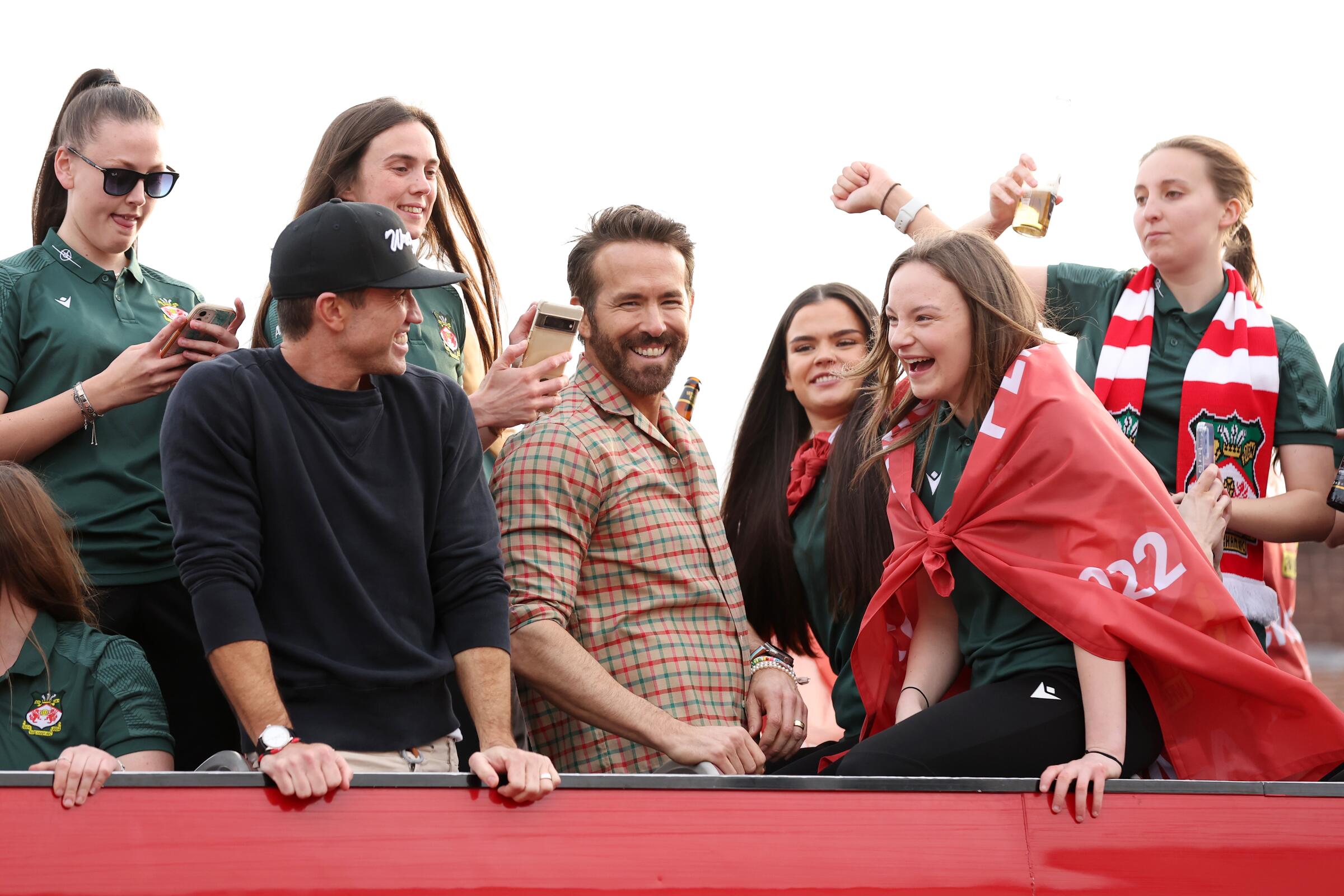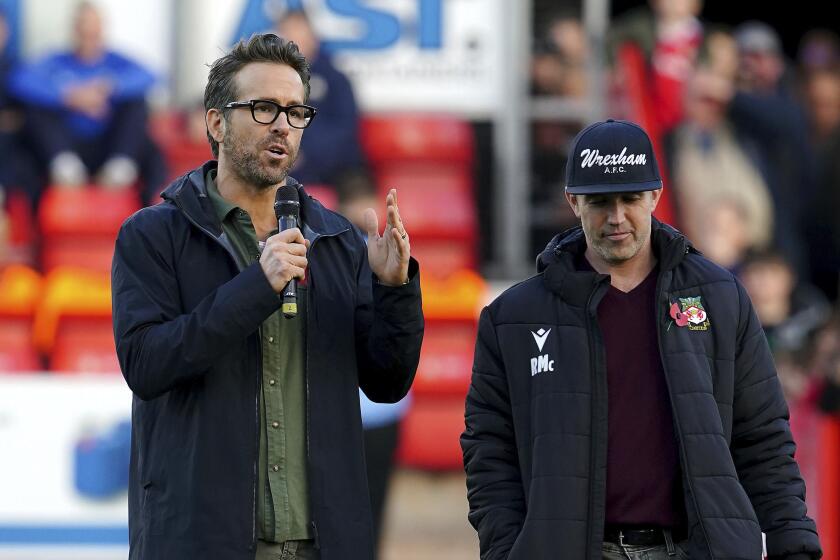Kevin Baxter writes about soccer and hockey for the Los Angeles Times. He has covered seven World Cups, five Olympic Games, six World Series and a Super Bowl and has contributed to three Pulitzer Prize-winning series at The Times and Miami Herald. An essay he wrote in fifth grade was voted best in the class. He has a cool dog.
- Share via
1
The team’s leading scorer spends her weekdays in prison. The teenage midfielder washes dishes in a restaurant between practice sessions. And home games are played not in a stadium, but in a 19th century rock quarry just outside the town the team represents.
Women’s soccer in Wales is far from glamorous. Crowds are measured in the dozens or, on a really good day, hundreds. The fields are wet and bumpy, the officiating is often just as uneven and there are no million-dollar contracts. In fact, for most of the players, there are no contracts at all. Instead, the players pay the teams to play.
This is part of the scenario Hollywood heavyweights Ryan Reynolds and Rob McElhenney inherited when they bought a down-on-its-luck Welsh men’s soccer club three years ago and turned it into the streaming docu-series “Welcome to Wrexham.” Because as part of that deal, they became owners of a women’s amateur team as well.
In only their second year as club owners, the Hollywood stars shepherded their soccer team’s championship, earning a promotion to the English Football League for the 2023-2024 season — the club’s first time in 15 years.
The series’ first season followed the once-proud men’s squad as it struggled to rise from the lower rungs of the English soccer pyramid, restoring the pride and dignity of a blue-collar town whose fortunes mirrored those of the club. The women waited, off camera, for their story to be told.
On Tuesday, it will be. The sixth episode of the FX docu-series’ second season, which streams a day later on Hulu, will focus on the women, who play soccer as if their lives depend on it — because in some cases, it seems as if it does.
Lili Jones, the 18-year-old midfielder, was inspired to play by her father and adopted Wrexham as her team because it was his team. A U-17 Welsh international, she played in the Everton academy system and might still be there had her father not lost his battle with mental health and anxiety issues 18 months ago.
Now she’s playing the game they once enjoyed together to keep his story alive.
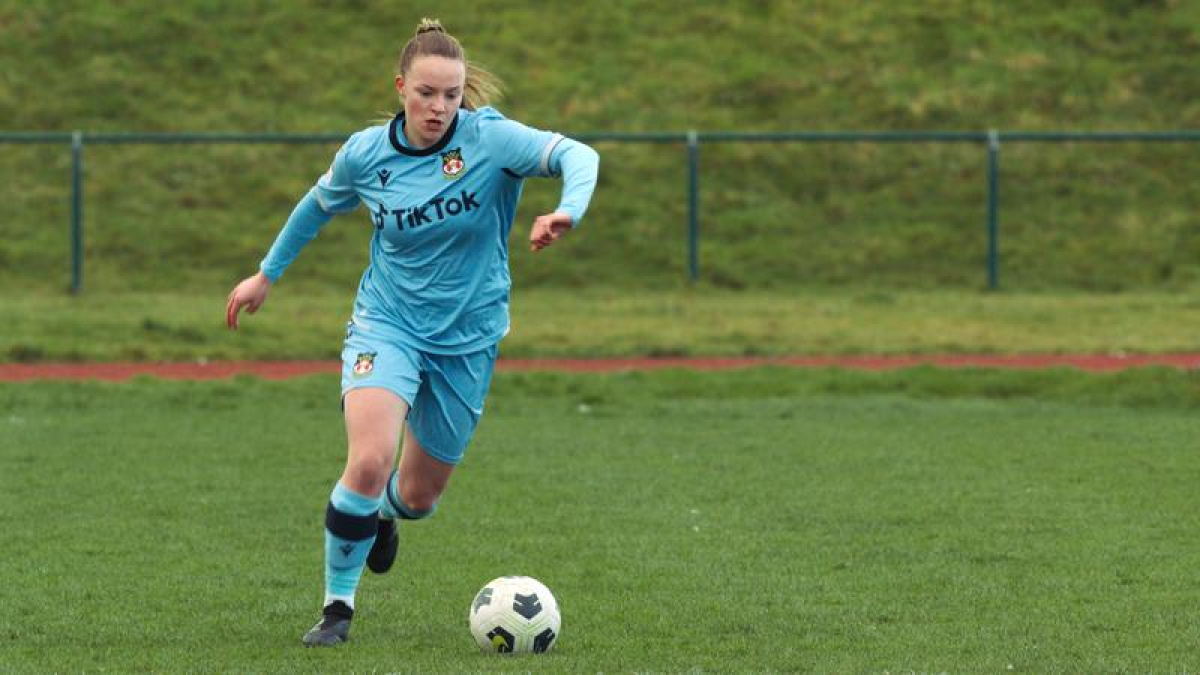
(FX)
“I want my dad’s story to be shared,” she said by phone from Wales. “When it first happened, I was a bit skeptical of talking about it properly. But I think the right thing to do is share it and get as many people who do struggle with mental health to feel like that there is somewhere you can go find help. There’s always kind of a way out.”
Rosie Hughes, who joined Wrexham just weeks after Reynolds and McElhenney bought the club, scored 90 goals during 39 games in her first two seasons. But because Adran North, the league in which the team played, wasn’t professional, Hughes spent her days working as a guard at HM Prison Berwyn, the largest prison in the U.K.
“The job I do is difficult. It’s emotionally straining,” Hughes, 28, who grew up going to prisons to visit her brother and sister, who were inmates, tells the camera.
She’s writing a different family history on the soccer field.
“I love every goal,” she said. “When I’m on the pitch, the fire within me, it just kind of explodes. I look like I’m laughing in opponents’ faces but I’m not. I’m just happy for me.”
But after each game, Jones would go back to washing dishes and Hughes would go back to prison. That was something the new owners hoped to change when, in one of those first moves after taking over, they invested $60,000 — a small fortune in women’s amateur soccer — to help the team win a Tier One license and promotion to Adran Premier, the semi-professional league at the top of women’s soccer in Wales.
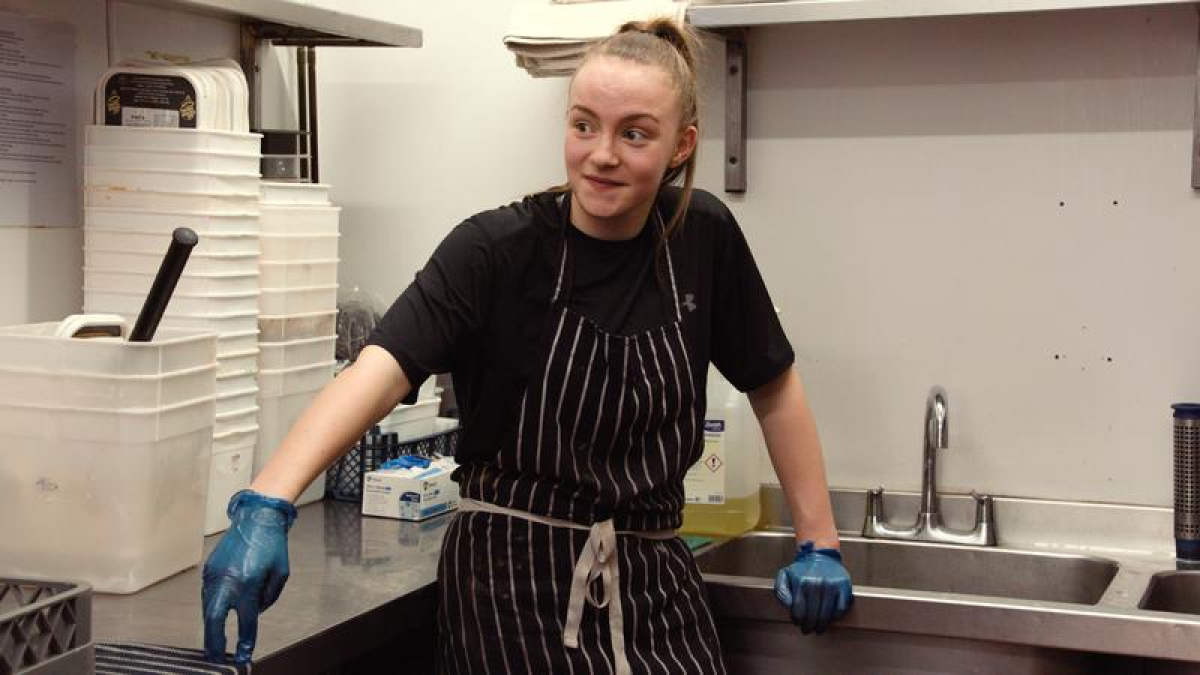
(FX)
That would give the players access to things such as uniforms and equipment they previously had to buy themselves. Thanks to the new owners, Aviation American Gin, a company Reynolds once invested in, slapped its name on the team’s tracksuits and TikTok, the jersey sponsor of the men’s team, put its logo on the women’s kits. Players rode to the games together in a bus rather than individually in their own cars.
“In terms of change of ownership and what that’s brought, that’s basically given us a platform to be able to increase what we’ve wanted to do, it’s allowed us to reach the ambitions that we set for ourselves,” Gemma Owen, Wrexham’s head of women’s football, said in a phone interview.
“Barriers have been commonplace in women’s sport, and particularly women’s football, in the U.K. for many years. We want to get rid of as many of those barriers as possible.”
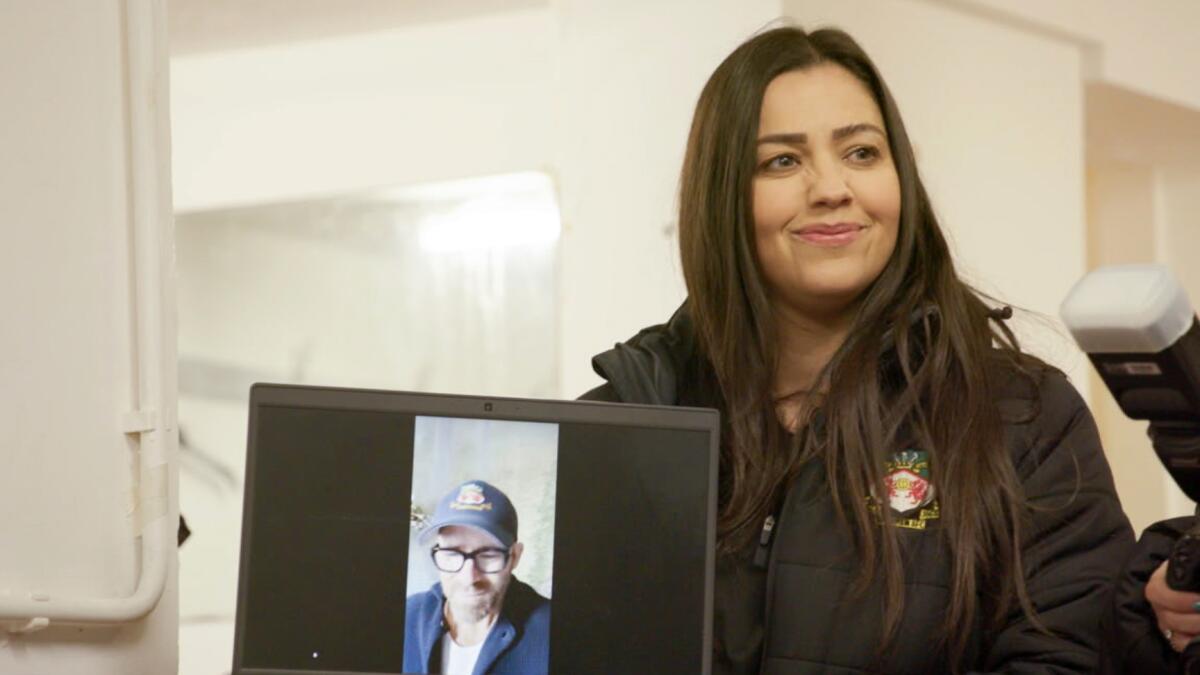
(FX)
This is where we come to the spoiler alert, because while Tuesday’s episode covers the 2022-23 league season, it doesn’t cover the April playoff that determined whether the team would be promoted. That’s covered in the docu-series later this month. So if you don’t have access to Google or would rather wait to find out what happened, stop reading here.
Whether it was the Hollywood investment money or simply the team’s drive, Wrexham did indeed win the playoff, finishing the season unbeaten after topping Adran South champion Briton Ferry Llansawel 1-0 on a 74th-minute goal from Rebecca Pritchard, one of just three players remaining from Wrexham’s last top-tier team in 2016. Two months later Jones and Hughes both became professionals — well, semi-professionals anyway — signing two-year contracts. Eight other women, including Pritchard, signed one-year deals and the team is unbeaten three games into the new season, behind seven goals from Hughes.
The contracts are hardly lucrative. So Hughes still works at the prison and Jones still washes dishes, though she’s cut back to one night a week. For the teenager, the journey has meant as much as the destination.
The former baseball stadium that hosted the Lancaster JetHawks is poised to host a USL-affiliated pro team that could help revitalize the high desert.
“We’ve had to work harder to kind of get where we are. But I think that adds to the togetherness and the family that we have at Wrexham,” Jones said in the phone interview.
“We’re all our own people. And we all bring different things from different backgrounds to the squad. You can look at it as a negative if you want. But we have other jobs that, I think for me, it’s a positive.
“We’ve all got different skills and different things that we’ve learned from having to work. It’s just a part of the women’s game. Eventually that will die out and I’m so excited for future generations to get the chance to be professional footballers. That foundation is set now for the future of Wrexham Football Club to be part of something very special.”
⚽ You have read the latest installment of On Soccer with Kevin Baxter. The weekly column takes you behind the scenes and shines a spotlight on unique stories. Listen to Baxter on this week’s episode of the Corner of the Galaxy podcast.
